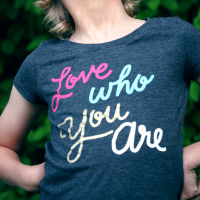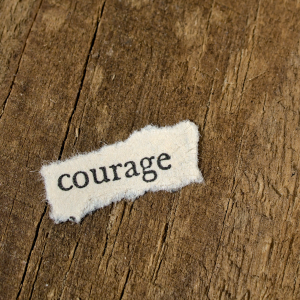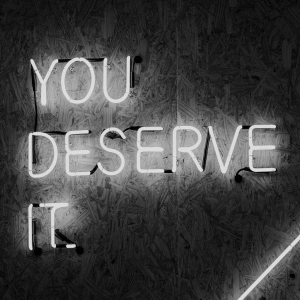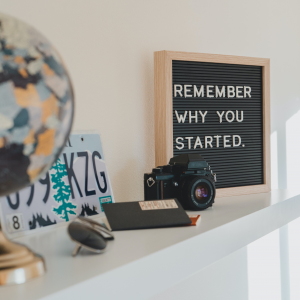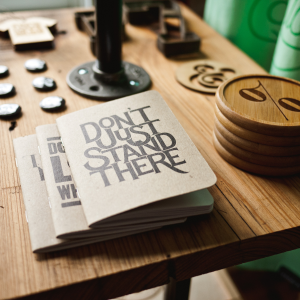Episode 84: Join me for this episode, where you’ll get some great tips for how to deal with emotional overwhelm.
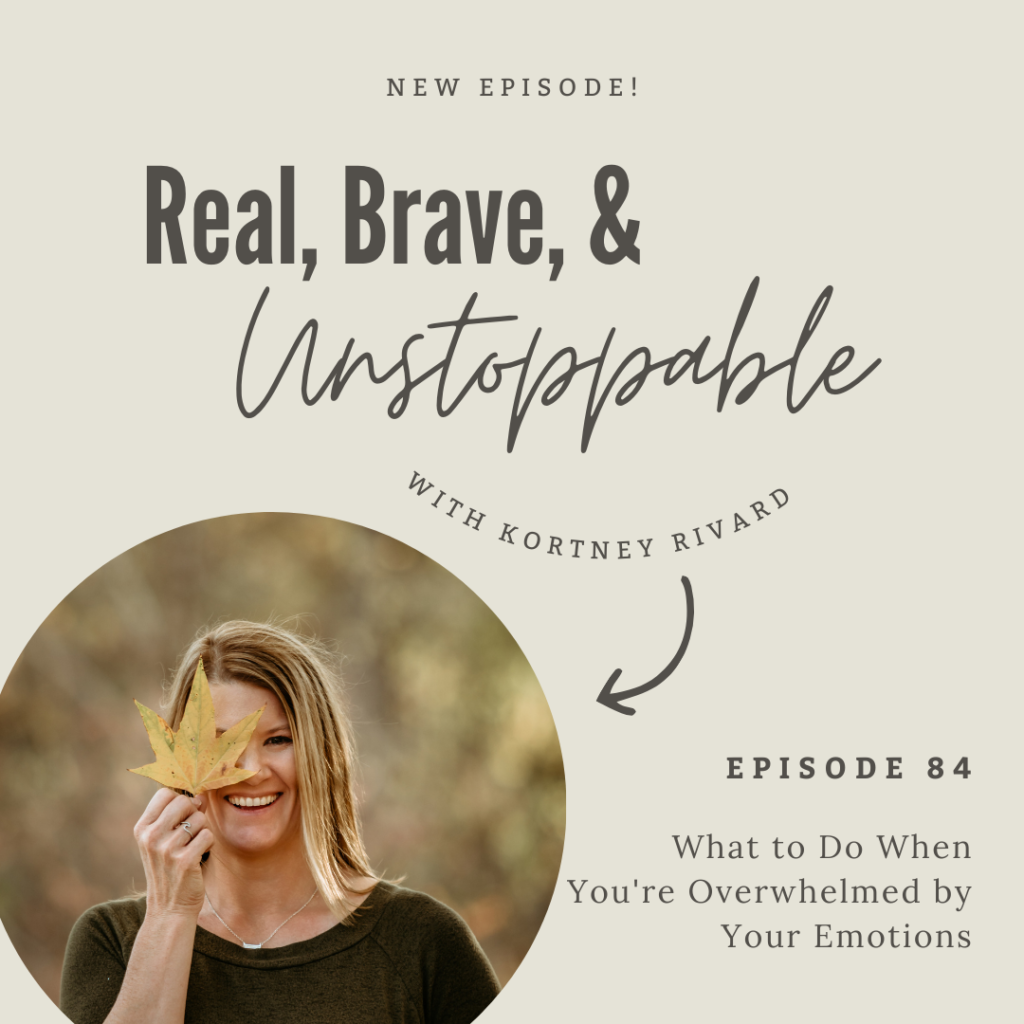



Prefer to read an article? Visit Kortneyrivard.com/blog
Show Notes:
Feeling big emotions can feel uncomfortable and sometimes even scary. But it’s not helpful to push your emotions away. So how do you handle emotional overwhelm? In this episode you’ll learn:
- what emotions are and why we have them
- why all emotions are neutral – they don’t have a good/bad label until we give them one
- a few things you can do to be able to handle your emotional overwhelm
Listen to the full episode to get all the details!
Resources
New Program!
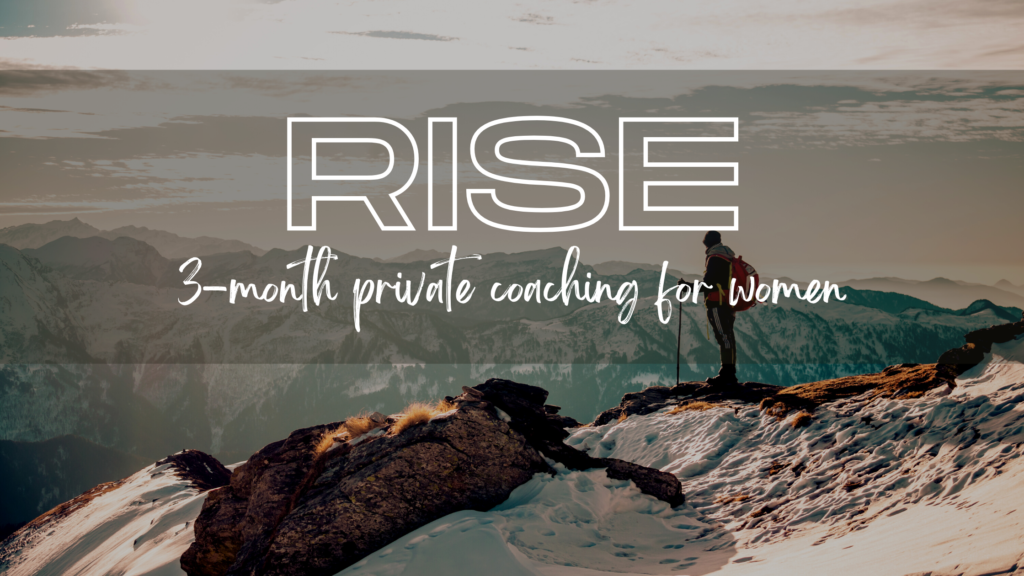
This program will help you get your bearings and do the work necessary to create a roadmap for creating the bigger and better life that you deserve!
Join my Meetup group!
Do you live in the Washington, DC area?
If so, I invite you to check out my new meetup group: Rise Strong – Divorce/Breakup/Life Transition Support for Women
Do you want to learn more about how I can help YOU with emotional overwhelm? Let’s talk!
Schedule a call at www.kortneyrivard.com/lets-talk
Visit https://kortneyrivard.com/lovelife to download a free guide on how to create a life you love!
Support the show (https://www.buymeacoffee.com/kortneyrivard)
You May Also Like:
- Episode 82: How to Cope with Loneliness
- Episode 78: How to Bounce Back from a Breakup (or other life upset)
- The Real, Brave, & Unstoppable full episode catalog
Transcript:
Episode 84
[00:00:48] Hello everyone. And welcome back to real, brave and unstoppable. This is episode number 84. Thank you so much for tuning in today. A couple of items of business before we dive into the episode. First of all, if you’ve been listening for a while, a couple of weeks ago, or maybe about a month ago now, I know I talked about a summit, an online summit that a colleague of mine—Ann Becks who was on the podcast about a month ago–
[00:01:23] she and I are coordinating and hosting. It’s called Unapologetically You: Stop Settling and Start Living the Life You Really Want. It’s on May 5th. It’s going to be eight speakers talking about how you can be more
[00:01:48] unapologetic in showing up authentically in your life and what that does for you. Like what the benefits of that are, and actually also what it’s costing you to not show up in that way. Super important. The link to register goes live on Monday, April 25th.
[00:02:18] I’ll put the link in the show notes and you can go register for that. We have a VIP option where you can purchase recordings and it also comes with a special resource guide. You‘ll have everyone’s contact information and bios and how to find them all in one place. Each speaker is also being generous enough to donate a free gift for all of you.
[00:02:46] So even if you don’t have VIP, you’ll still get the free gifts. You just won’t have access to the recordings for more than 24 hours. So go sign up for that. And the second piece of news I have, I mentioned this last week, but I have a brand new program called rise. It’s a three-month private coaching program and it is perfect
[00:03:06] if you are feeling a little lost in life and maybe you’ve been through a big transition in your life, like of divorce or breakup. Maybe your kids are heading off to school, so you’re an empty nester. Or maybe you’ve lost a job or, you know, things like that where you’re kind of like, I don’t know what is next for me.
[00:03:26] I don’t know where to start. This program is absolutely perfect because I will help you figure it out. You know, get your bearings and sort of figure out what direction you might want to go. So you can create a roadmap to creating a bigger and better life than what you had before, because it is possible.
[00:03:45] And that’s the other thing that we work on in the program is helping you believe in what’s possible for you. So that is super exciting. If you want to learn more about that, you can go visit kortneyrivard.com/RISE or if you want to just jump into a call and chat with me about it, you can go to my website, kortneyrivard.com/lets-talk.
[00:04:08] So let’s with that jump in to the episode today, I’m talking about emotions and handling emotions that are overwhelming. And I was actually inspired to do this episode for a couple of reasons. First, I’ve been reading Brene Brown’s Atlas of the heart and watching the series on HBO, max. So good. It’s so good.
[00:04:32] I highly recommend watching it. So many of us don’t really have language for our emotions and this is really great. It breaks down, I think it’s 87 different emotions and the things I’ve learned about emotions that I thought I knew what they were it’s incredible. I highly recommend that.
[00:04:51] So that was my one inspiration to talk about emotions and the other one was that myself and a couple of clients that I work with have just had some heavy emotions lately. I thought, you know, this is something that we all struggle with and I wanted to talk about, you know, just what emotions are, why we have them.
[00:05:10] And how can we just let them be. How can we be with them a little bit better and let them pass without resisting them and getting so freaked out by them. So, today I’m going to tell you a little bit about emotions and what they are, why we have such a hard time being with them. And I also, if you only take one thing away from this episode, I want it to be that all of the emotions that you feel are equally valid and valuable.
[00:05:41] There’s not one emotion that’s better than another one and you actually have access equal access to all of them at any given time. And then finally, I’m going to talk about just some ways that you can feel the feels without melting down. So let’s dive in. The first thing I want to do is just sort of illustrate with a story.
[00:06:05] I’m going to use my own story of emotions to get started with this. When I went through my divorce, I had been a stay-at-home mom for 13 years, I think. And I was a photographer on the side, but I wasn’t at that point doing a ton of photography.
[00:06:22] And so when the divorce happened, I had so much fear around what I was going to do for a career. How was I going to make money? I basically was starting over. I have a degree in aerospace engineering and while I don’t regret giving that career up
[00:06:42] because I was able to spend so much quality time with my kids that my ex just didn’t get. I’m so I’m thankful for that. But the reality of it is now that I am single is that I lost a lot of years of earning power, promotions, raises, all the things, 401k contributions, all of those things.
[00:07:07] And so it really put me behind in terms of, you know, my financial situation. And it’s really hard to see my ex because he seems like he’s just living the life. He took me out of it, put another guy in there and, uh, there, there it is. And so I get to watch that life. I get to watch my life being lived by someone else from the outside.
[00:07:35] And that’s hard. I’m just going to be super vulnerable today and like, just transparent about everything. I have a hard time with it. And when I got divorced I went through a really, really, really hard time. I’ve talked about it before on the show, but it was not pretty, people.
[00:07:55] It was messy. But so much growth happened and I learned so much. I appreciate where I am now.
[00:08:06] But during that time, I did a lot of work on forgiving my ex for cheating on me and for the way he treated me during our divorce. And I really thought I had forgiven him and, you know, I’ve even been able to say nice things about, about him. So, I felt like I had really come a long way in that, you know, and it’s interesting because recently, I’ve been in a new certification program
[00:08:35] so I can deliver even bigger transformations for my clients. And I’ve been learning so much a great coaching certification program is one that you do the work that you help your clients through. This program has really triggered a lot of stuff for me.
[00:08:53] And so I’m noticing that that forgiveness that I thought I had for my ex I really don’t. There are a lot of levels that I just don’t forgive him yet. And I found myself really angry, frustrated, so much resentment, and just a lot of sadness over where I thought I would be in my life right now versus, you know, all the hopes and dreams that didn’t get to get lived.
[00:09:23] And I had all these emotions that I think they all sort of landed in just a lot of sadness. I was really struggling with that emotion because it felt really scary to me. , in the past, you know, during that divorce process, that sadness it’s spiraled into depression. And then into not being able to get off the couch and really function.
[00:09:49] And so sometimes, you know, the, I think I have a story about sadness when it’s really intense, that that’s bad because look, what happens when you get sad because you can’t function, your life falls apart, all the things. So I found myself in that really intense sadness and felt sort of a resistance to it
[00:10:11] without really knowing why. So I had to take a step back and kind of go, okay, this is what the work is. It’s learning how to be with the sadness and, and be okay with it, even though it doesn’t feel good to be able to view with it and then just give myself so much love and so much compassion for that sadness that I’m having.
[00:10:34] And guess what? That sadness ran its course, and today I don’t feel sad. Wow. So, yeah. So I just wanted to share that story because first of all, this happens to me too, you know, I coach people through these things, but you know, I’m learning these things as I go too.
[00:10:58] Maybe I might be a few steps ahead of you, but this is work that all of us humans have to do no matter who we are.
[00:11:07] And then the other reason I wanted to share that story is to illustrate how impermanent emotions are and how I didn’t go down the rabbit hole with that sadness. I let it be there and it wasn’t easy to sit there and feel it at all but emotions are so impermanent, they come and go.
[00:11:28] So first, the first thing I want to do is talk about what emotions are. They’re actually really a lot more complicated, I think, than any of us realize. Anytime the brain gets involved, whoa, but emotions are really like your brain’s best guesses of what your, your body sensations mean.
[00:11:48] You have an experience, and your brain sends out neurotransmitters that it’s a chemical cocktail that basically starts. The emotion (and if any of you listening are super technical with this, please forgive me and bear with me because this is just like rudimentary explaining it at a, probably a three-year-old level).
[00:12:09] But anyway, the best guesses that your brain is making, they’re guided by your past experience, your beliefs, your stories, you know, all of that stuff and your brain is not always right when it comes to that stuff, it’s an interpretation, a perspective.
There are eight basic emotions and those eight are joy sadness, fear, disgust, surprise, anticipation, anger, and trust.
[00:12:38] And of course there are more emotions, but those are like the eight basic ones. There’s a guy named Robert Plutchik that came up with an emotion wheel or something like that. If you go to the website, sixseconds.org, you can download that for free. And it’s just kind of interesting. And I actually use emotion wheels with my clients a lot. A lot of us don’t have language for what we’re feeling. It’s really hard to get out of our head and like actually feel it and say, oh, that’s, you know, that’s hopelessness or that’s, joy. Joy tends to be easier for most people.
[00:13:18] But you know, our vocabulary, when it comes to emotions tends to be pretty limited. So that’s sort of helpful.
[00:13:25] So the next thing I want to talk about is emotions being neutral. Emotions don’t have a good or a bad until we give them. And what’s also really important to know is that they’re very interconnected. So, for example, joy and sadness, they’re both about something you care about. They’re almost like two sides of the same coin. On one hand, joy, it’s where you have something or you’re doing something or you get something you care about.
[00:13:56] And sadness is, you know, maybe you lost something you cared about. So, you can’t really know one without the other. If you’ve seen the movie Inside Out, such a good movie, but that theme comes up a lot. I forget her name, but they’re trying to get rid of all the sad memories. And then they realize at the end that the sad memories were really necessary.
[00:14:19] Emotions have a purpose, they all have a purpose. We’re not supposed to be happy when someone dies. Or anger, for example, anger signals something. It signals that you’ve got to do something to find a solution to something, our path is blocked. Joy motivates us to do more of what we’re doing.
[00:14:40] Emotions are really a motivator of human behavior. They move you towards something you need or want. They’re connectors, they’re actions sparkers. And interestingly enough, emotions, like I mentioned earlier, it all starts with a chemical reaction. And I didn’t realize that it was this fast,
[00:15:05] I thought it was longer than this, but
[00:15:07] from the time that the chemical cocktail is released and then broken down and absorbed in your body, it’s like six seconds. I thought it was more like 90 seconds. Big difference! So I didn’t verify that, there’s a website I talked about six seconds.org. It talks a lot about that.
[00:15:27] That’s not very long and if it lasts longer, we’re actually choosing to fuel that emotion or keep recreating it. And that actually, it can be a good thing. Like if it’s a real danger, you want to keep being scared because you want to get away from the danger or if it’s something that is joyful, like then that’s you.
[00:15:50] Yeah. You want to keep recreating that because it feels good.
[00:15:54] But the thing I really want to drive home with all that is that emotions are neutral. We give them meaning
[00:16:01] and they don’t really have a good or a bad until we give them that meaning.
[00:16:07] So I know you’ve probably had some form of emotional overwhelm at one time or another. And when that happens, it can be really difficult to manage and there’s all, you know, there’s all varying levels of on the spectrum, but it can overtake your ability to think clearly or ability to function at a high level.
[00:16:29] It doesn’t necessarily have to be that damaging, but when you get to the point of overwhelm, it can definitely have that effect on you. And so that’s the one extreme, but even when they’re not incapacitating it could still cause stress and it still can cause you to lose focus and stuff.
[00:16:50] And why is that? If they’re neutral, why does that happen? Well, it’s because first of all, as humans, we naturally want to move toward what’s good. What feels good and move away from what feels bad. And, you know, we’ve been around. So, we know in our head, we have stories about what feels good and what feels bad.
[00:17:15] Emotions are a little complicated, cause there’s like a physical component. And it all happens quickly. For example, when you feel anxiety, you might feel tightness in your chest. And it doesn’t feel good. So you sense that initially. But then also there’s the labeling that happens. The emotion is labeled as bad because we’re being triggered by something that’s happened to us before, or the opinion we have about them or the story we have about them.
[00:17:46] Remember, I said six seconds. Anything longer is fueled by thoughts, beliefs, stories. Some examples of some stories that might cause you to kind of freak out when you have a difficult emotion, which will eventually cause them to be overwhelming is the sadness story I shared. And just like that trauma I had when my ex betrayed me by cheating on me, it, that trauma is stored in my body.
[00:18:13] That’s how trauma works. It’s stored in your body. And so when I’m triggered with sadness, You know, that comes up. I feel that. And so I have this story of, oh my gosh. The last time I felt this kind of sadness, it led to, you know, depression and not being able to get off the couch, hospital visits like that, all the things.
[00:18:36] When you don’t take the time to interrupt the thought pattern and really see it for what it is, that’s where your brain wants to go is freak out. So that’s a story I have of it not being good is if I feel this sadness (A) then B happens. Anger is another example.
[00:18:54] Let’s just say when you’re growing up, you grew up in a very chaotic household. That was like walking on eggshells and you weren’t ever allowed to be angry as a kid. So as an adult, you’re going to have a story about anger that anger causes chaos or turmoil. You’ll believe that it’s bad to be angry.
[00:19:16] So you’re going to try to push that anger away if that’s your story. Now, remember I said, if you take one thing away from this episode, I want it to be that all of your emotions are equally valid and valuable.
[00:19:28] Remember, emotions have a purpose, in preparing for this episode, I read a lot about the purpose of emotions and the same things kept coming up. One of them was basically connection. Emotions help us communicate to other people
[00:19:46] so it helps other people understand us. It also helps us understand other people. There’s that connection. Emotions also motivate us to take an action or they will signal that we need something. They’re there for a reason. The problem is humans. We get in the struggle over them.
[00:20:07] We want to control the emotions or we want to get rid of them. But when you push emotions away, it actually makes it harder
[00:20:15] When you’re pushing them away you’re actually disconnecting. You’re losing a piece of communication about what’s going on for you. If you’re pushing them away in front of other people, you’re not able to connect with someone else authentic. So, let’s just say, for example, someone else is going through something similar or that to you, or someone’s having a hard time.
[00:20:42] And if you’re pushing away those emotions, that connection is going to get missed, that chance for connection. It’s going to get missed.
[00:20:54] The other thing that I think is really important is that when you’re pushing your emotions away, you can pull in secondary emotions. Using anger as an example, the story that anger is bad. So, then you might pull in shame for feeling angry. Or, if you feel sad, you might be angry at yourself for feeling sad.
[00:21:16] So that secondary emotion like pulls you away from what you really need. If you’re feeling angry, you probably feel angry for a reason. So then feeling shame is going to cause you to do something different. You’re actually pulling yourself away from the reason why you feel angry.
[00:21:33] And pushing them away really just dulls the awareness of that. You kind of lose sight of it, of what you really want and need when you push your emotions away. And what happens is you start looking outside of yourself
[00:21:51] for what you need – for approval and validation.
[00:21:56] It’s really important to remember that you have access to all of the emotions at any one time, at any time. And instead of pushing away the emotions, it’s really important to be willing to entertain the idea that they’re all valid and valuable. Equally valid and valuable. You have to be willing to feel them too.
[00:22:17] I think it helps to feel them when you know that when you feel a quote unquote, bad emotion, your access to the quote unquote good emotions doesn’t change. So here’s an example of a client that I was working with. She’s had a lot of stuff go kind of haywire in her life lately and she’s really felt angry.
[00:22:39] Anger is not something that she’s used to feeling so it feels very foreign and unsettling to her. It doesn’t feel great. And she’s found herself getting angry in situations that seem really insignificant. This has really been dragging her down.
[00:22:59] I was asking her about the anger and she commented on how right now, what she really needs is to be able to find peace. And she’s worked really hard on being able to being able to find peace. You know, so now all this stuff is happening and she is wanting that peace and not the anger. She said, the anger is the last thing I need right now.
[00:23:20] I just need to be able to find the peace when I don’t feel that piece. There’s like a piece of me that’s gone. And that is, that’s so interesting, right? No, that piece is not gone. It’s in there. It’s in you. And here’s the thing. Well, first of all, you can access it. And we’re going to talk about that in a little bit, but it’s not gone.
[00:23:45] It’s still there. The other thing to remember, and I said this earlier, is that without the quote unquote bad emotions, you wouldn’t know what the quote unquote good emotions are. You wouldn’t be able to appreciate them for the good. It’s just like in the movie Inside Out.
[00:24:03] In my work, we talk a lot about loving ourselves. And part of loving yourself is allowing all the feelings and trusting yourself that the emotions that you want to feel are still there, that you can still access them. This is one thing that I’ve learned so deeply in the last year, is that in order to love myself, I have to love all of the parts, all of them.
[00:24:32] I can’t pick and choose, likeI can’t decide I don’t love the part of me that’s angry. No, I have to love that part of me that’s angry and give her so much compassion that sometimes she’s angry as shit. And that’s okay. You know, that’s what we have to do is we have to allow the feelings and know that that’s just part of loving who we are.
[00:24:54] It doesn’t mean that we’re going to turn into, you know, sad, depressed, angry people all the time. No, no. We can feel those feelings. Let them go and move on to another one. It takes a lot of practice and willingness to be with all of your emotions though. I totally get that. I know you’re probably thinking, Kortney,
[00:25:19] this is so great. But how in the heck do I actually be okay with sitting with this terrible feeling I have? Yeah. It’s not easy, and it’s a work in progress, I will say, but you have to start with, I mentioned being willing before- you have to be willing to be with the emotions that don’t feel good.
[00:25:43] One of my favorite authors, Pema Chodron, I talk about her all the time on the show. She’s a Buddhist nun. She writes a lot about impermanence. And it’s a concept that I love because basically it means that nothing is permanent. The good stuff isn’t permanent and the bad stuff isn’t permanent. None of it, zero, nothing.
[00:26:05] Nothing is permanent. It’s like waves. Emotions are kind of like waves really. This metaphor has been super helpful for me. When you have an emotion, it’s like a big wave coming into the shore and you know, if you’ve ever surfed, I’ve surfed once. And one time I got up on the first try and then I never got up again.
[00:26:27] But, if you’ve ever surfed, it’s intense. It’s like a big, big rush of water. And you have to. deal with that. But then it rolls over and it goes away and then it turns into another wave, you know?
[00:26:51] So they come and they go, waves are not permanent. Same thing with clouds. You see a cloud? I don’t know. I, when I was growing up, we used to lay on the ground and look at the clouds and see what shapes we could find in them. And they’re fleeting, you know, you might see a bunny rabbit, one like second, and then, you know, three seconds later, it morphs into a shovel.
[00:27:15] I don’t know why I came up with the word shovel (laughs), but anyway, impermanence, just remember that is, and if you play with that, you’re going to see what I mean. You’re going to feel what I mean, you’re going to, you’re going to start to trust it. So be aware of that when you feel something, if you can just be with it.
[00:27:35] How long does it last? The second thing is to try to understand your emotions. If you just latch onto the story you have about them and run with that, as that’s not going to feel real great to you, but try to actually understand them, get present with them and understand what’s going on. You know, take a moment to look at where they’re coming from.
[00:27:57] You know, what happened? Did something trigger you? Where are you? What time is it like, is it a certain time of the day? Are you tired? How did it happen? What’s going on? Just try to get some context around it and, you know, really get honest. Are you magnifying the emotions by replaying everything in your mind over and over again?
[00:28:20] Or catastrophizing? I’m super guilty of catastrophizing when I get tired and frustrated. I can sometimes spiral and feel like my whole life sucks and there is nothing good about it. I really have to be intentional about my thoughts when this happens. So, if I’m super worn down, overwhelmed, exhausted catastrophizing, I know that about myself. Knowing that about myself, I can look at what negative possibility is coming up in my brain and
[00:28:51] very consciously give equal airtime to all the other possibilities. Is it easy? No, it’s not, but I’ve done this enough to know that that is my default is to catastrophize and I know what to do about it. So that’s important to understand your pattern, understand your process, understand where the emotions are coming from and you know, how are you making them worse than they really are?
[00:29:16] Accepting them is important too. I feel angry. I’m willing to feel angry right now. I’m willing to be with this anger while it runs its course because it’s impermanent. And I know I won’t always feel angry, so accept them. You can believe you’re whole and amazing.
[00:29:41] You can love who you are even though you’re angry. And give yourself a break if you need. You can give yourself a break. But be willing to come back to them if they’re not done running their course, so you’re not pushing them away. You’re just taking a little break and to take a break, you can, you know, get some exercise, get some fresh air connect with friends, take a bath, relax, do some breath, work, meditate, look at the clouds, like all these things, right?
[00:30:07] You can take a break and say, you know what, I’m going to go access some other kind of like less intense emotion for a little while. And it might mean that I’m kind of being with both of them at the same time and that’s okay. Now I talked to earlier about my client who wanted to feel peace instead of anger. We worked on like how to access the peace that she wanted.
[00:30:29] So this is something that is super helpful. I love doing this — what if you, let’s just use anger as an example, what if anger wasn’t bad in your world? What if you went to a planet where anger was just another emotion, not good or bad.
[00:30:51] What if you didn’t have to worry about feeling the feeling? You weren’t worried about it, it wasn’t bad to feel it both the good and the bad versions were equally as valuable know anger and the opposite of anger. What would be possible if they were just all neutral for you?
[00:31:08] How would you feel if it didn’t feel bad to feel angry? What would that feel like? I love that question. maybe you would feel calm. Maybe you’d feel like you’re floating or, you know, light and carefree. And then I like to ask, what, what are you doing?
[00:31:30] When you think about times when you feel those feelings like calm, floating, carefree, light, what kinds of things are you doing when you feel those feelings in real life? This is where you go to access peace when you need it, for example. It doesn’t mean you’re bypassing.
[00:31:50] You’re just going and you’re accessing that little island of peace in the middle of this big fricking storm. And it’s a beautiful way to just take a little break and the even more beautiful thing about it is that the more you do that and practice it, you start to trust yourself that you can feel really hard emotions, but you can also take a break when you need it.
[00:32:15] The part of you that is peaceful or carefree or joyous, it’s not gone. If you’re sad or angry or frustrated or resentful, it’s not gone, it’s still there. And the more you practice accessing it, the more you will trust that you can always access it.
[00:32:34] And the final thing is to practice so much self-love. Love yourself through all of it, all of it. When you’re feeling sad, just give yourself so much self-compassion and so much self-love. What does the person who is so afraid of this emotion need right now?
[00:32:56] Can you send a little love to her? Just so much love, so much compassion.
All right. To recap all of this, I threw a lot at you today. Remember, all of your emotions have a purpose. One is not better or worse than all the others they’re equal. You might not like some of them as well, but that’s your own story about it.
[00:33:20] They all have a purpose. It’s hard for us to feel the negative ones because we have the stories and beliefs and experiences about them that say, they’re bad. We don’t want those. We want to push those away, but all of them are valid and they’re equally valuable and you have access to all of them at any time.
[00:33:41] A couple of other things to remember are that it’s not good to push emotions away, but you can take a break if you need. Okay. And it’s a good practice to know how to find those little glimmers of peace or freedom or joy or whatever in the middle of an emotional shit storm. Totally good practice to know how to do that.
[00:34:02] And finally, you know, the key to loving who you are and the key to kicking ass at life is loving who you are and the key to loving who you are is to be able to love all the parts of you, even the part of you who has emotions that don’t feel good. So how can you accept those emotions when they come and be willing to see the purpose in them and just be with them?
[00:34:27] And then. How can you love yourself through it while you feel all of it? How can you stay out of judging yourself for having them and just love yourself through it? That’s your challenge. That’s your question to answer. Go grab a journal. Write about.
All right, friends. Thank you so much for tuning in! One thing I have for you to do today is go to my website kortneyrivard.com/lovelife
[00:34:55] I have a great workbook for you called Creating a Life You Love. And you can download that. It’s going to help you take a look at what’s not working in your life and what you need to change to make it better. And emotions can be one of the things you look at. So go download that. If you have any questions about anything, always feel free to hit me up at kortney@kortneyrivard.com and I will see you next week.

